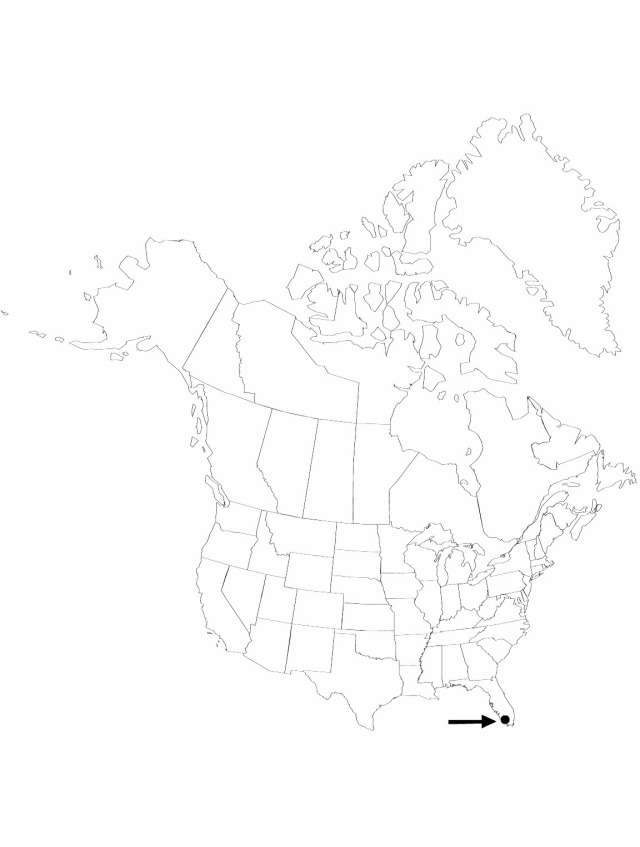Catopsis nutans
Flora of the British West Indian Islands 599. 1864.
Plants flowering 0.1–0.3 m. Leaves spreading, bright green, 8–15 cm, somewhat chalky, especially toward base; sheath pale, elliptic; blade subtriangular to narrow triangular, apex acuminate. Inflorescences: scapes decurved; bracts subfoliaceous, laxly imbricate; inflorescences single spikes (in flora), spikes 3–10-flowered, pendent; floral bracts green, elliptic, 1.4–1.5 cm. Flowers nocturnal; sepals green, broadly elliptic, 1–1.2 cm, thin-leathery, apex obtuse, surfaces glabrous; petals widely spreading, bright yellow, ligulate, 2–2.4 cm; style included, stigma erect, simple. Fruits ovoid, 1.2–2 cm.
Phenology: Flowering fall–winter.
Habitat: Epiphytic in shady, humid hammocks
Elevation: 0–30 m
Distribution

Fla., Mexico, West Indies, Central America, South America.
Discussion
Catopsis nutans is rare in the flora.
Selected References
None.